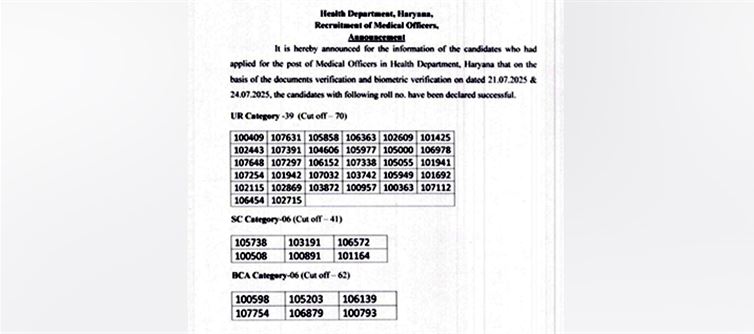
The public is left wondering whether this is the result of political interference, reservations being applied without adequate merit safeguards, or sheer negligence in evaluating candidates. Whatever the reason, the implications are dangerous. Medical officers are not just another set of employees — they are the frontline decision-makers in diagnosing, prescribing treatment, and sometimes performing emergency interventions. A flawed recruitment process directly impacts the quality of healthcare, putting patients’ lives at risk and undermining trust in public health institutions.
If merit is being sidelined for other considerations, the long-term consequences could be devastating. Poorly trained or less competent officers may fail to identify critical symptoms, make errors in treatment, or mishandle emergencies — outcomes that could result in costly consequences, including loss of life. The authorities need to address this with transparency, explain the criteria used for selection, and ensure that only the most competent candidates are entrusted with such crucial responsibilities. After all, when it comes to healthcare, there is no room for compromise on skill and merit.




 click and follow Indiaherald WhatsApp channel
click and follow Indiaherald WhatsApp channel